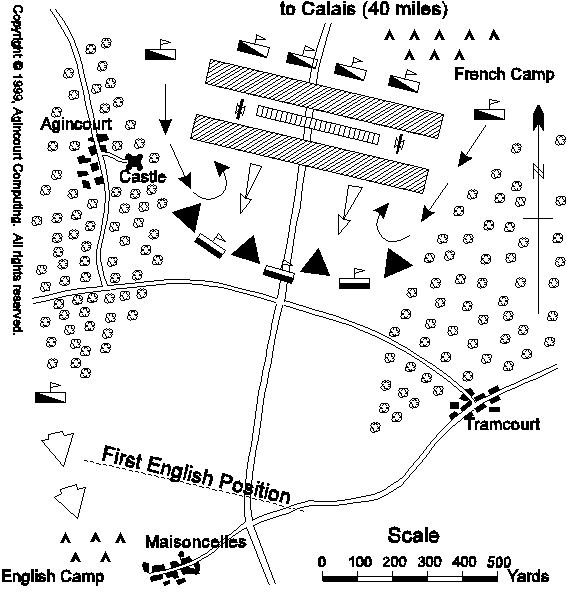From the New York Times:
No one can ever take away the shocking victory by Henry and his “band of brothers,” as Shakespeare would famously call them, on St. Crispin’s Day, Oct. 25, 1415. They devastated a force of heavily armored French nobles who had gotten bogged down in the region’s sucking mud, riddled by thousands of arrows from English longbowmen and outmaneuvered by common soldiers with much lighter gear. It would become known as the Battle of Agincourt.
But Agincourt’s status as perhaps the greatest victory against overwhelming odds in military history — and a keystone of the English self-image — has been called into doubt by a group of historians in Britain and France who have painstakingly combed an array of military and tax records from that time and now take a skeptical view of the figures handed down by medieval chroniclers.
The historians have concluded that the English could not have been outnumbered by more than about two to one. And depending on how the math is carried out, Henry may well have faced something closer to an even fight, said Anne Curry, a professor at the University of Southampton who is leading the study.
Those cold figures threaten an image of the battle that even professional researchers and academics have been reluctant to challenge in the face of Shakespearean verse and centuries of English pride, Ms. Curry said.
“It’s just a myth, but it’s a myth that’s part of the British psyche,” Ms. Curry said.
The work, which has received both glowing praise and sharp criticism from other historians in the United States and Europe, is the most striking of the revisionist accounts to emerge from a new science of military history. The new accounts tend to be not only more quantitative but also more attuned to political, cultural and technological factors, and focus more on the experience of the common soldier than on grand strategies and heroic deeds.
There's more...

Winning against two to one odds on the enemy's own territory is hardly a shabby performance.
ReplyDeleteThe victory did not go to side with the best logistics, nor did it go to the most valiant. Or the wealthiest, or the cavalry. It went to the side which was best prepared to fight a battle. Hank Sank shoulda bin a boy scout.
Ann Curry's history, revisionist or not, does not change the fact that careful planning and preparation defeated gallant but ill planned charges. That is still not in doubt. Good work by Anne Curry. All in all though, I always felt that there was more to the story and she filled much of it in. Thank you Steve for that link.
http://southtowerarmouringguild.blogspot.com